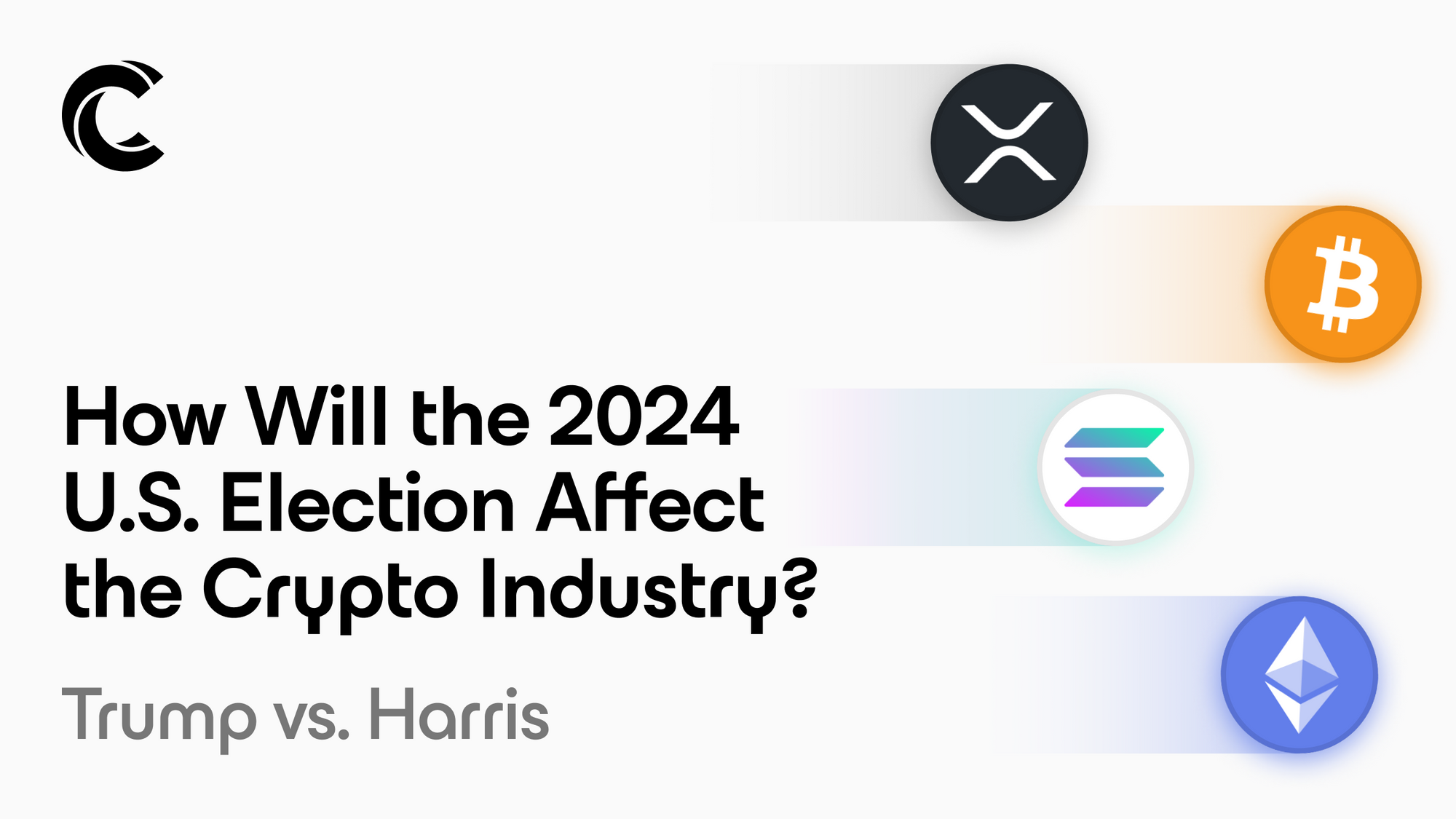Trump vs. Harris: How Will the 2024 U.S. Election Affect the Crypto Industry?

As the U.S. election season heats up, the market holds its breath. The election is expected to have far-reaching implications for crypto in America and beyond.
How might another Trump presidency impact crypto? What if Harris takes the lead? Let’s explore the potential scenarios.
Where the 2024 presidential candidates stand on cryptocurrency
Donald Trump
Donald Trump, once critical of cryptocurrency, has repositioned himself as a pro-crypto candidate in the 2024 presidential race.
In 2019, he criticized crypto, linking it to illegal activities, and his administration took regulatory actions against companies like Ripple. However, by 2024, Trump shifted his stance to attract crypto-focused voters and donors.
At a major cryptocurrency conference, he declared his ambition for the U.S. to become the "crypto capital of the planet" and launched Bitcoin-friendly initiatives, including accepting Bitcoin donations and selling NFTs. His running mate, Senator J.D. Vance, is also a strong advocate for cryptocurrency, and the Republican party platform supports crypto rights. More recently, Trump announced the launch of World Liberty Financial, a crypto project built on Aave and Ethereum that seeks to challenge traditional banking systems.
If Trump reclaims the presidency, his economic policies — characterized by deregulation, tax reductions, pro-business — will likely be mirrored in his approach to crypto. Such policies might include easing regulations on Bitcoin, which could stimulate institutional investment and elevate its market value.
Additionally, in a climate of lower interest rates and heightened corporate friendliness, Bitcoin may become increasingly attractive to institutions.
Kamala Harris
A Harris victory is likely to signal a shift toward more progressive economic policies. Think higher taxes on the wealthy, tighter regulations on corporations, and a focus on social programs. But how does Bitcoin fit into this picture?
The vice president has yet to take an official stance on crypto during her campaign, reflecting broader uncertainty within the Democratic party. Democrats face a challenge in connecting with the crypto community, especially after the Biden administration's perceived hostility toward the industry.
Following FTX’s collapse, the SEC began cracking down on crypto, filing lawsuits against major firms like Binance and Coinbase for allegedly bypassing investor protections. This uncertainty leaves room for speculation that her administration might adopt a more cautious or even restrictive approach to digital assets.
With potential voters and large donations at stake, Democratic leaders are now working to improve their relationship with the crypto industry. In mid-August, they held a 90-minute virtual town hall with key cryptocurrency advocates to reset their approach, signaling openness to pro-crypto policies.
Does crypto really care who the next President is?
Regardless of the next president, one trend seems inevitable: Interest rates are going down. Both Trump and Harris will likely favor policies that keep borrowing cheap, flooding markets with liquidity. This “cheap money” could fuel Bitcoin’s rise (and by extension the rest of crypto), especially as fiat currencies like the Dollar, Yen, and Euro continue to lose purchasing power.
Zooming out, Bitcoin always seems to rise after U.S. elections, regardless of whether there is a Democrat or Republican in office. The market doesn't like uncertainty, and U.S. election season is the height of uncertainty.
Once the elections have taken place, market players can start to feel a little more confident in their allocations and will likely begin investing in greater volumes.
Don’t be fooled by the market's sideways action
Election season may spark some short-term volatility, but have no fear. Markets crave certainty, and once the elections are over, crypto could be on the verge of its next big move — regardless of who wins.
Legal Notice
This blog post is being distributed by CoinList Global Services Ltd., dba “CoinList,” or one of its subsidiaries. CoinList does not provide—and this post shall not be construed as—investment, legal or tax advice. This blog post and use of the CoinList website is subject to certain disclosures, restrictions and risks, available here.
